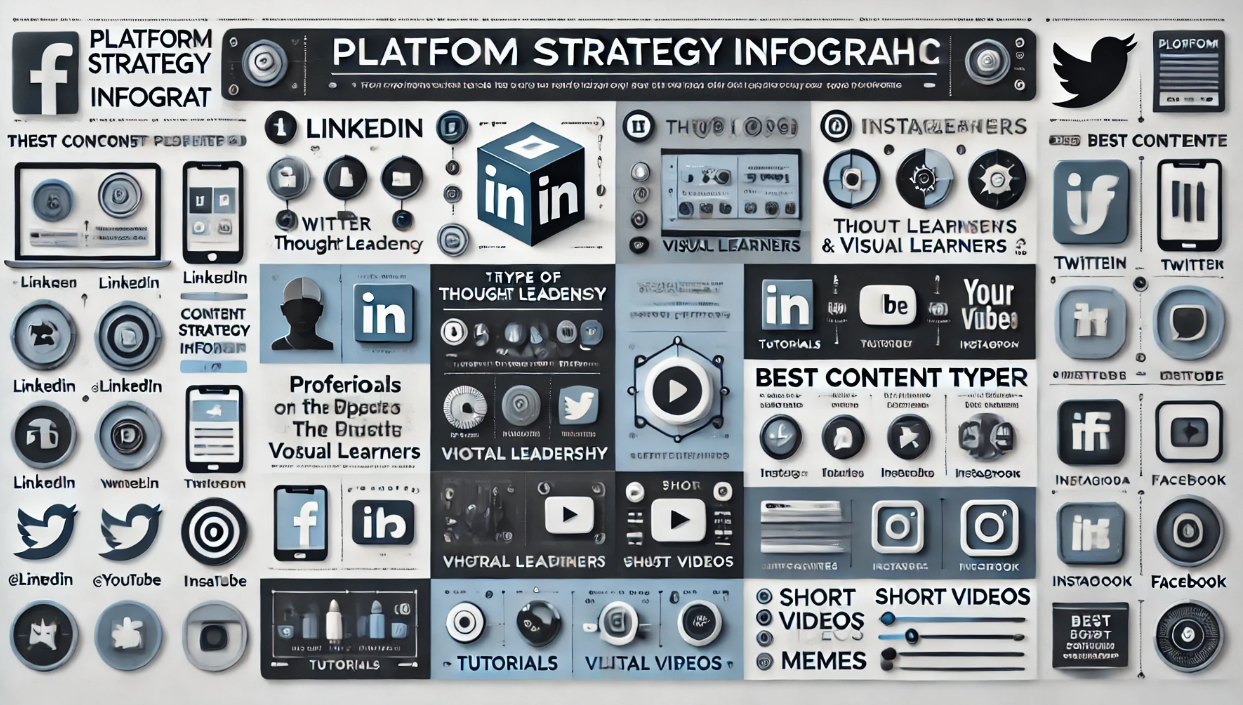Social Media Marketing for Web Hosts: What Works on Each Platform?
Introduction
In the ultra-competitive world of web hosting, being fast and reliable isn’t enough—you need to be visible. That’s where social media marketing comes in. But not all platforms are created equal.
Whether you’re targeting tech enthusiasts, business owners, or resellers, understanding which platform suits your message can help you grow your brand and drive conversions.
What This Guide Covers:
✅ Why social media is essential for web hosting companies
✅ Platform-by-platform breakdown (LinkedIn, Twitter, YouTube, etc.)
✅ Content strategies that work for each audience
✅ Tips to boost engagement and drive traffic
Why Social Media Matters for Web Hosting Brands
Social media platforms are not just for selfies and memes—they’re business powerhouses when used strategically. For web hosting providers, they serve multiple purposes:
✔️ Build brand awareness
✔️ Showcase expertise and trustworthiness
✔️ Provide customer support in real-time
✔️ Share technical insights and tutorials
✔️ Attract new clients and affiliates
✅ Result: A strong social presence = more leads, better customer retention, and higher visibility.
1. LinkedIn: B2B Outreach and Thought Leadership
Best For:
- B2B connections
- Partner programs
- Enterprise hosting solutions
- Professional credibility
What Works:
- Share case studies and client success stories
- Post industry insights (e.g., trends in cloud infrastructure)
- Promote webinars and whitepapers
- Engage with IT managers and decision-makers
Pro Tip: Optimize your company page, and encourage team members to share and interact with posts to expand reach.
2. Twitter (X): Fast Updates and Tech News
Best For:
- Sharing tech tips, announcements, and outages
- Building relationships with developers and sysadmins
- Engaging with the tech community via hashtags
What Works:
- Post short updates, promo codes, and downtime alerts
- Use polls, threads, and memes to create engagement
- Join conversations around #DevOps, #SysAdmin, #WebHosting
- Retweet relevant tech content from other thought leaders
Pro Tip: Be consistent, witty, and responsive—Twitter users love real-time, human interactions.
3. YouTube: Tutorials, Reviews & How-Tos
Best For:
- Explaining technical concepts visually
- Building trust and authority
- Driving organic traffic to your site
What Works:
- Step-by-step tutorials (e.g., “How to Set Up WordPress on VPS”)
- Product walkthroughs and feature updates
- Web performance comparisons (your service vs. competitors)
- Troubleshooting guides and security tips
Pro Tip: Optimize your video titles and descriptions with keywords, and include a call to action for viewers to visit your site or sign up.
4. Facebook: Community and Support
Best For:
- Support groups, product announcements
- Targeting non-technical audiences and small businesses
- Running ads for promos and discounts
What Works:
- Create a Facebook Page and a support-focused group
- Share blog posts, discount campaigns, and customer reviews
- Use Messenger for real-time customer service
- Run retargeting ads based on website visitors
Pro Tip: Boost your best posts and run lookalike ad campaigns to find new customers similar to your current audience.
5. Instagram: Visual Branding & Company Culture
Best For:
- Showcasing team culture, events, behind-the-scenes
- Engaging with younger audiences or resellers
- Announcing sales visually
What Works:
- Share infographics (e.g., “Top 5 Web Hosting Tips”)
- Post reels about tech setup hacks
- Highlight your data centers or remote team
- Use stories for quick updates or mini-polls
Pro Tip: Use hashtags like #webhost #techstartup #cloudhosting to expand your reach.
6. Reddit: Honest Conversations with Developers
Best For:
- Engaging with developers, sysadmins, and DIY users
- Answering tech-related questions
- Getting feedback on your product or features
What Works:
- Participate in subreddits like r/webhosting, r/sysadmin, r/devops
- Offer genuine, non-spammy help
- Share helpful blog posts, tools, or guides
- Host an AMA (Ask Me Anything) session
Pro Tip: Reddit users hate advertising. Be helpful first, promote second.
Summary: What to Post Where
| Platform | Audience | Best Content Types |
|---|---|---|
| B2B, professionals | Case studies, reports, whitepapers | |
| Twitter (X) | Tech-savvy users, devs | Updates, threads, memes, links |
| YouTube | General, visual learners | Tutorials, comparisons, walkthroughs |
| SMBs, support-seekers | Blog shares, promos, reviews | |
| Younger, visual users | Reels, infographics, team culture | |
| Devs, sysadmins | AMA, guides, helpful answers |
Final Thoughts: Build a Strategy That Matches Each Platform
Social media isn’t just a broadcast tool—it’s a two-way conversation. As a web host, your audience ranges from non-tech small business owners to experienced sysadmins. Tailoring your content per platform helps you meet each of them where they are.
Final Tips:
✅ Focus on value, not just promotion
✅ Use analytics to measure what’s working
✅ Build consistency into your content calendar
Your hosting brand deserves to be seen—start optimizing your social presence today!

